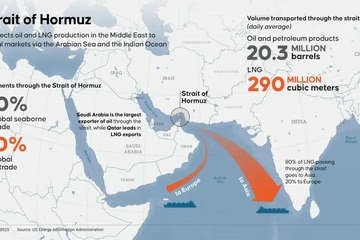
The most recent moves by Republika Srpska (RS) entity President, Milorad Dodik, in connection with the annulment of the 2004 Commission for Srebrenica's Report will lead to a disaster, said the American analysts and professor at the Washington-based Johns Hopkins University, Daniel Serwer.
He said the RS Parliament's decision to reject the Report on Srebrenica will cause new sanctions against individuals, but also a potential "disaster" for the Serb-dominated, semi-autonomous RS entity.
"Mr Dodik is steering towards a disaster for himself and for Republika Srpska. I don't think there’s much that happened in Srebrenica that hasn’t been well understood, well-described od well researched in recent years. This is a political manoeuvre by Dodik to try to cleanse the RS of responsibility for what happened. That won’t work," Serwer told N1. "It won’t work in the eyes of the international community, in the eyes of most Bosnians and it won’t work in the eyes of most people in the Balkans. He’s chosen a political road that has already led to US sanctions against him personally and I think it will lead now to the US sanctions against many other people in the RS and it may lead eventually to a real disaster for the RS because it can’t continue in that direction and expect the rest of Bosnia and Herzegovina to put up with it."
Serwer, who is an expert on the situation in the Balkans and Bosnia said that Dodik’s lobbyists will not help him in this situation, in which Serwer expects fresh sanctions to be imposed by the US. Dodik’s party, the Alliance of Independent Social Democrats (SNSD) has hired American political campaign experts Jason Osborne and Michael Rubino to lobby for the SNSD’s interests in Washington.
"Hiring high-priced friends of the Trump administration may get one a hearing in Washington but it won’t get him the results he’s looking for. He’s wasting the RS’ money. He’s trying to justify his own reliance on Russian funding and it simply won’t work. he’s driving into a dead-end. He should turn around and try to get out of it as quickly as he can," Serwer noted.
Several prominent experts, government officials from Washington and London and several LGO’s expressed their concerns over the past months concerning the events in the Balkans and Bosnia. Serwer seemed to share their concerns.
"I think the think-tank community in Washington is worried about the Balkans and it’s worried because of people like Dodik choosing bad roads. And he’s not the only one. (Bosnia’s Presidency member Dragan) Covic and (Presidency Chairman Bakir) Izetbegovic are less outspoken but they aren’t choosing very good roads either. So people are really quite concerned about the Balkans and about the return of instability," he stressed.
"I don’t think you can see a return to the same kind of war that we’ve seen in the 90’s because you don’t have (the former President of Serbia Slobodan) Milosevic and you don’t have the same kind of military capabilities the political will in the Balkans for a lengthy war. But you can have instability which can ruin people’s livelihoods and it could lead to death and destruction."
Serwer recalled German Chancellor Angela Merkel’s recent message regarding the borders in the Balkans, for which he said was very clear, but he also added that the US should reaffirm her message.
"I think the Americans should repeat her statement – word for word. But they’re not doing that. What they’re saying is ‘OK, you don’t like the red lines. we’ll let you talk with each other without red lines, but it’s not a blank check. We still reserve the right to judge the outcome by our own standards.’ This is a mistake," he pointed out.
"The red lines exist for very good reasons. Changing borders anywhere in the Balkans opens Pandora’s box and we all know that. The system that was set up after the Dayton Peace Agreement, which ended the war in Bosnia, has worked so far. It not beautiful but it’s a whole lot better than what existed before the Dayton."
He said he believes it is time for the people of the Balkans to stand up and say they do not want to waste time the moving borders when those borders will disappear as soon as the countries enter the EU.
"I think it’s time for the US Government, in particular, to wake up to the reality and start to lead as it did in the past rather than issuing wishy-washy statements. It needs to reassert the leadership that’s required to make the Balkans recommit to the right direction, which is the direction of the EU," Serwer concluded.
Kakvo je tvoje mišljenje o ovome?
Učestvuj u diskusiji ili pročitaj komentare





 Srbija
Srbija
 Hrvatska
Hrvatska
 Slovenija
Slovenija


























































